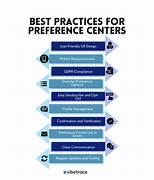Salesforce’s latest “rolling thunder” of AI enhancements brings significant innovations to Consumer Goods Cloud, leveraging the power of the Einstein AI platform already integrated into Sales Cloud and Service Cloud. These enhancements are designed to optimize planning and execution for consumer goods companies.
Salesforce Consumer Goods Cloud is an industry-specific solution that helps consumer goods companies streamline their route-to-market processes. By unifying trade promotion management and retail execution capabilities on a single platform, it enables seamless collaboration between headquarters and field teams. Utilizing Salesforce’s core CRM functionality and the Einstein AI platform, Consumer Goods Cloud empowers companies with data-driven insights and intelligent automation to drive profitable growth.
“Consumer goods companies are laser-focused on profitable growth. With the latest Salesforce innovations for Consumer Goods Cloud, they can unify consumer and customer data to plan promotions precisely, equip every field rep with tools to increase sales and reduce downtime, and integrate trusted AI into every service agent’s workflow to solve problems and upsell more frequently,” explained Rob Garf, VP and GM of Retail and Consumer Goods at Salesforce. “In short, every consumer goods company can now transform into an AI Enterprise.”
What’s New in Consumer Goods Cloud
The latest updates in Consumer Goods Cloud focus on integrating Salesforce’s Data Cloud with Einstein generative AI capabilities, enhancing three key areas:
Data Cloud for Consumer Goods: Account managers can now unify account and industry data to build rich customer profiles, segment accounts to the individual store level, and design hyper-localized assortment and promotion plans. For instance, a soft drink distributor can identify which citrus-flavored sodas are most popular in specific Mexican convenience stores and optimize replenishment accordingly.
Einstein Copilot Account Summarization: Within the service console, agents can access AI-generated account summaries, eliminating the need to switch between screens and knowledge articles. Summaries include last interactions, order history, satisfaction scores, and promotion details, enabling agents to resolve inquiries quickly and upsell intelligently.
Consumer Goods Cloud Einstein 1 for Sales: This AI-powered enhancement package provides sales managers, field reps, merchandisers, and delivery drivers with productivity and revenue-boosting insights. Real-time notifications and recommendations on stock levels, replenishment, special handling needs, and payment collection keep field teams responsive and effective.
The Salesforce Embedded AI Difference
Salesforce’s strategy of embedding AI via a unified Einstein platform offers several advantages:
Consistency: With Einstein already integrated into Sales and Service Clouds, Salesforce can efficiently extend proven AI tools to industry-specific use cases, benefiting users with familiar interfaces and interaction paradigms.
Completeness: Embedding AI at the platform level allows Salesforce to enhance the entire workflow from planning to execution. Consumer goods companies can apply intelligent insights to both back-office processes like promotion management and field activities like stock checks and payment collection.
Continuous Innovation: The Einstein platform enables rapid deployment of Salesforce’s latest generative AI advancements across all clouds, ensuring customers always have access to state-of-the-art capabilities.
Mars Snacking, one of the world’s largest consumer goods companies, is already benefiting from Salesforce’s AI-powered industry cloud. “At Mars Snacking, we are on an ambitious journey to rewire and almost double the size of our business by 2030,” said Bartek Kononiuk, Global Head of Product – Trade Promotion Management. “Consumer Goods Cloud and Trade Promotion Management will enable us to improve our business processes, data availability, and user experience in critical growth-enabling areas.”
AI Innovation Comes at a Cost
As the consumer goods industry strives to meet rapidly evolving buyer expectations, Salesforce’s embedded AI solutions for Consumer Goods Cloud offer timely advantages. By democratizing access to generative AI and data management capabilities, Salesforce enables companies of all sizes to optimize decision-making, boost field productivity, and drive profitable growth.
However, these advanced functionalities come with significant costs. Salesforce’s Einstein AI enhancements often have substantial per-user surcharges, sometimes exceeding $100 per month. For large deployments involving thousands of employees, these expenses can quickly escalate. Consumer goods companies must carefully evaluate the productivity and revenue gains against the added licensing costs.
Additionally, while Salesforce is leading the way in enterprise generative AI, the technology is still maturing. Early adopters may encounter instances where the AI delivers suboptimal results. Salesforce’s Trust Layer aims to mitigate these risks, but companies should approach generative AI with a clear understanding of its current limitations.
The ongoing enhancements in Salesforce’s Einstein portfolio present a promising yet costly opportunity for customers to evolve into full-fledged AI Enterprises. As the costs and benefits become clearer, consumer goods companies will need to strategically decide where and how aggressively to deploy these advanced capabilities. Those that find the right balance could gain a significant competitive edge in the rapidly changing digital landscape.













